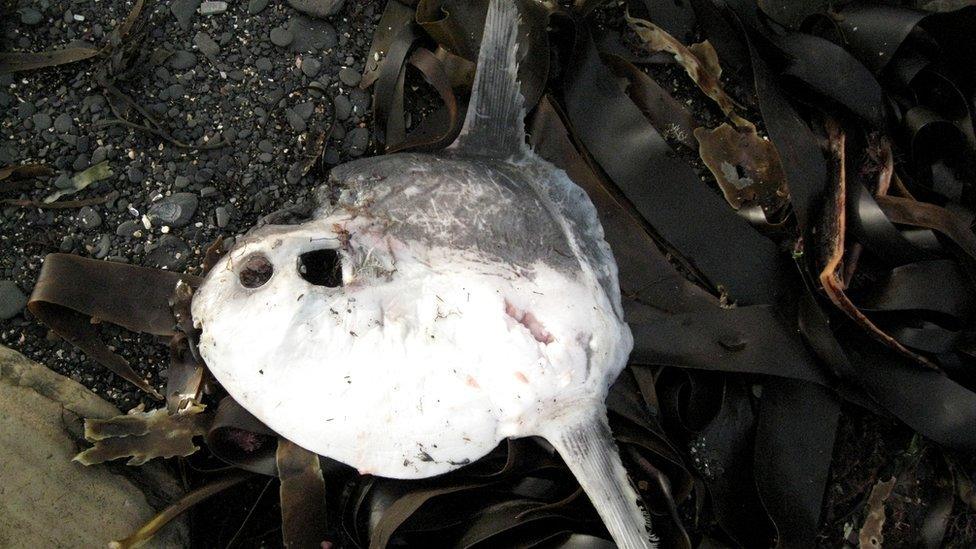Norfolk sunfish find important for research - expert
- Published
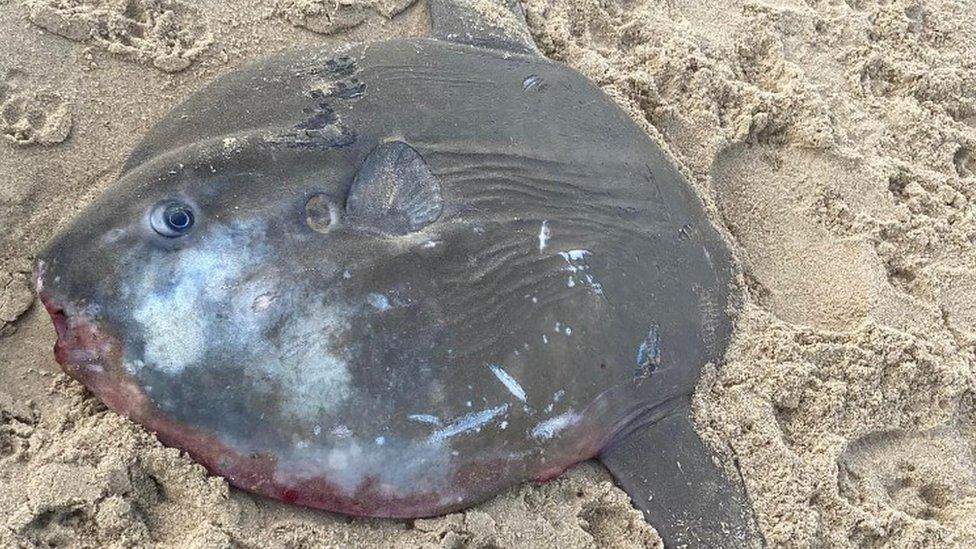
The sunfish was found deceased on a beach at Great Yarmouth
The discovery of a dead sunfish on a Norfolk beach is "incredibly important" to scientists studying the biggest bony fish in the world and potential climate change links, an expert said.
The juvenile fish, measuring about 1.5m (5ft), appeared on North Beach in Great Yarmouth last weekend.
Adults can grow to 4m (13ft) and weigh up to two tonnes.
Dr Ben Garrod, from the University of East Anglia, said four had washed up in a year but the reason was unknown.
"Sunfish are one of the most weird but iconic fish in the sea," the professor of evolutionary biology and BBC science presenter said.
The species - Mola mola - is the largest bony fish and generally lives in temperate and tropical waters.
Katherine Hawkes photographed the sunfish on the Norfolk beach on New Year's Day and said at first she did not know what she was looking at.
"Then I realised I'd once seen a sunfish swimming but they are rare at this time of the year," she said.

Sunfish (Mola mola)
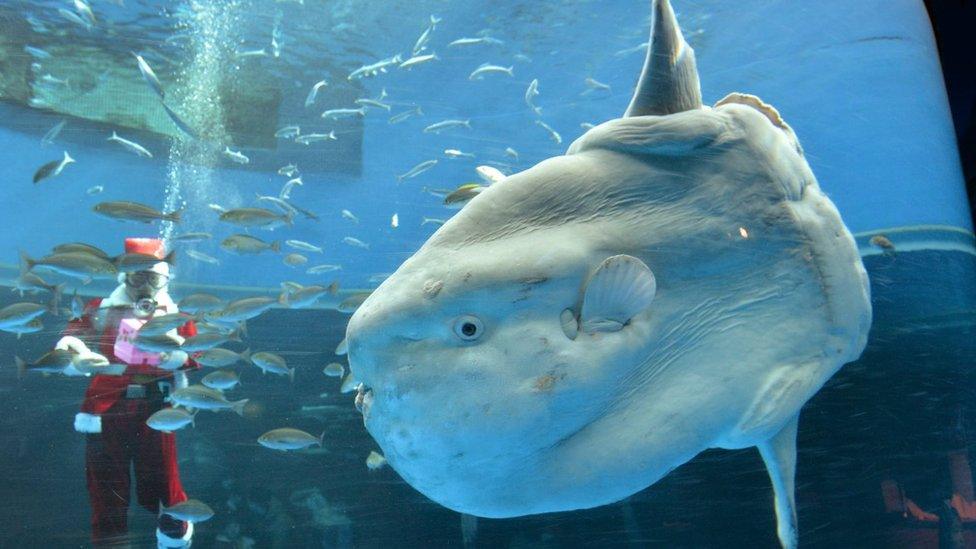
The ocean sunfish is the world's largest bony fish
The fish swim down to depths of between 50 and 200m (164ft and 656ft)
They feed mainly on jellyfish
Their name refers to their habit of lying at the sea surface on their side as if sunbathing
(Source: Marine Conservation Society)

At about 1.5m from the top to bottom fin, Dr Garrod said this was "the largest we've seen... in the last few years".
"But it's still a baby compared to the size of the adults," he added.
This is the fourth he had been told had washed up on Norfolk's beaches in the past 12 months, three of which have been examined at the UEA.
"We don't know why they died and this is an ongoing research project, but it's incredibly important as we know so little about them," he said.
"I know they have washed up on the Norfolk coast - maybe once every 10 years - but to have four in the last 12 months is really interesting.
"We don't have the evidence to say it's related to climate change but no-one's denying the oceans are changing."
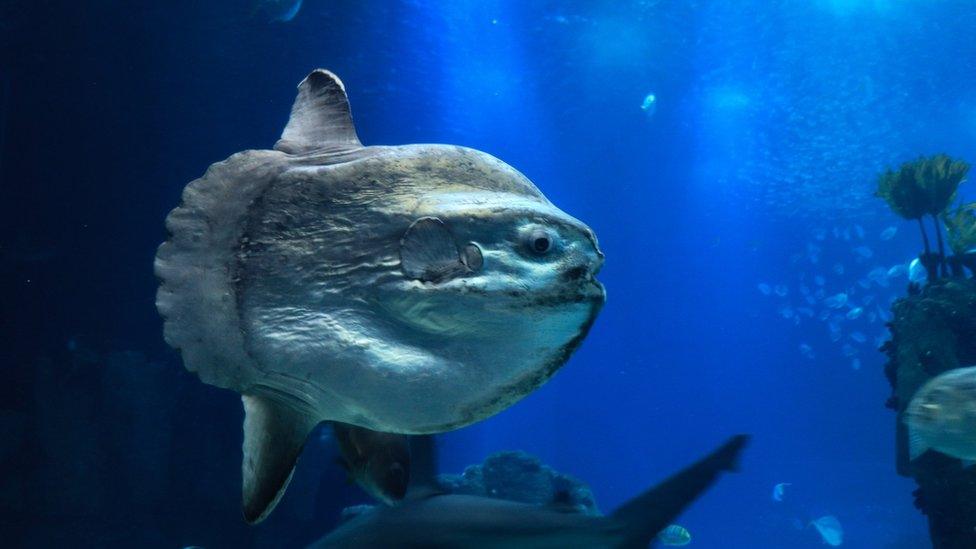
Sunfish are listed as vulnerable on the IUCN Red List
Prof Heather Koldewey, senior marine technical advisor at the Zoological Society of London, agreed.
"A single observation of one fish makes it hard to jump to a big conclusion around climate change, especially as occasionally dead sunfish have been recorded in previous winters off the UK coast," she said.
"However, as sea temperatures change, we are seeing the distributions of many marine species change.
"There have been more sightings of sunfish in the summer in the southwest of the UK, for example, which may be more indicative of climate-driven changes."
'A lost migrant'
A spokesperson from the Norfolk Wildlife Trust said: "Sunfish are such a unique species to see here in Norfolk. It's unusual for them to be found on our coastline, as they tend to thrive in much warmer waters.
"Despite this, a number of sunfish have been found along the Norfolk coast [recently].
"The fish are likely to have been following jellyfish - their preferred food source - and found themselves in difficulties in the much colder waters of the North Sea.
"Seeing unusual species such as sunfish here in Norfolk appears to be becoming more common, and could be linked to climate change and warming seas."
Joint marine recorder for Norfolk, Rob Spray, said: "We do look for trends, and as the climate changes we look for species that are increasing - and the North Sea is a pocket within reach, but a lost migrant like this one has come to the end of what it can survive in."
Dr Garrod added: "While it's sad to see that any animal dies, having sunfish here is unusual, exciting, and very interesting."

Find BBC News: East of England on Facebook, external, Instagram, external and Twitter, external. If you have a story suggestion email eastofenglandnews@bbc.co.uk, external
Related topics
- Published2 March 2019
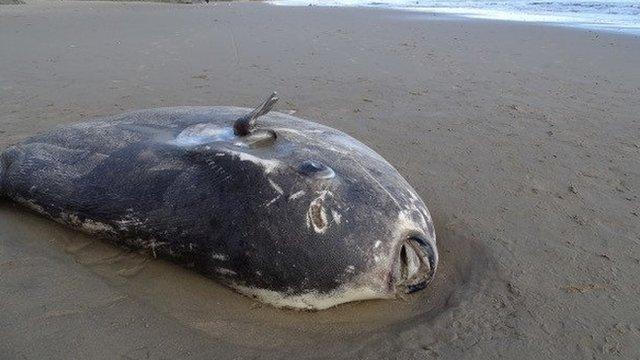
- Published2 September 2018
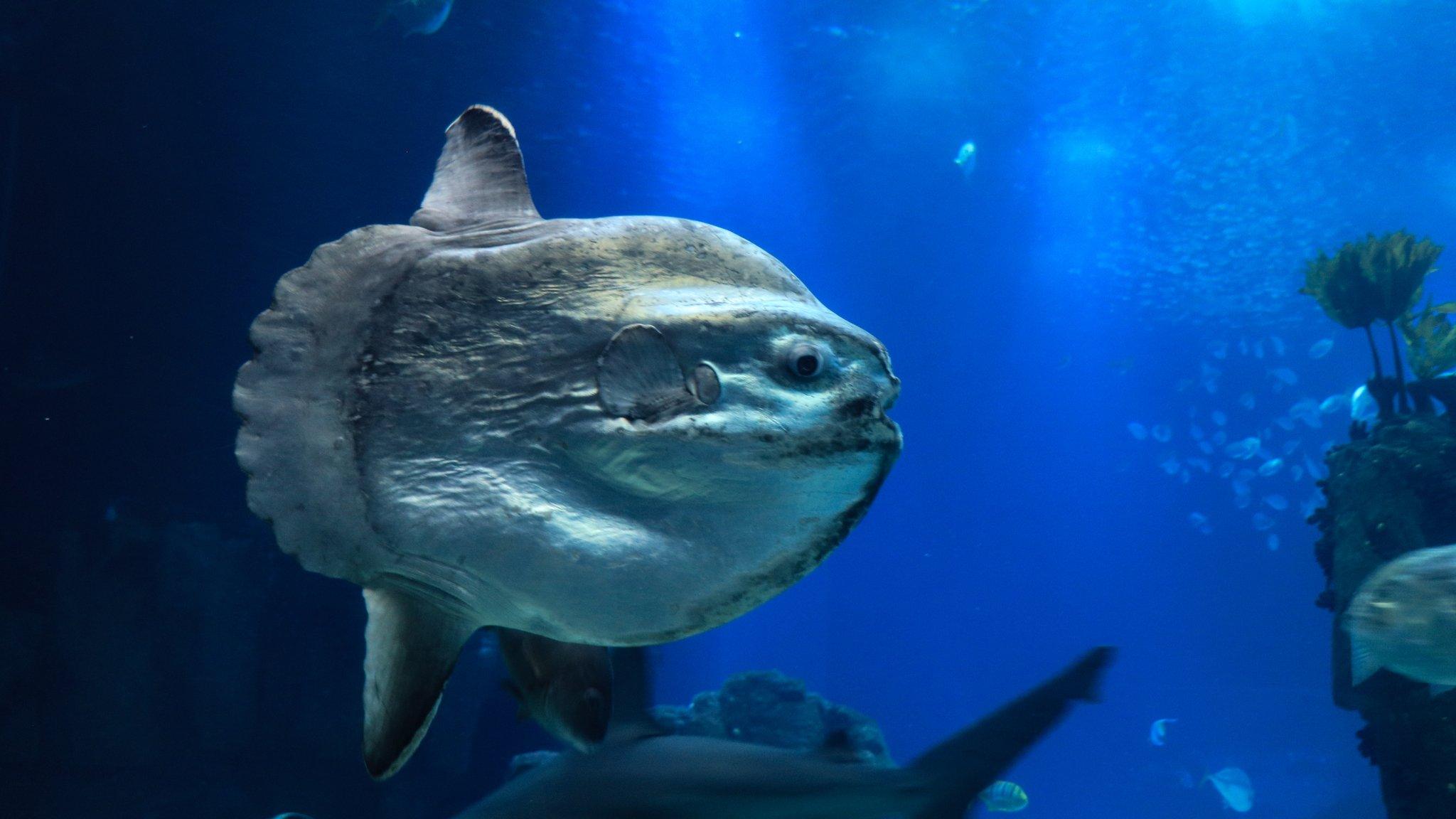
- Published10 November 2016
